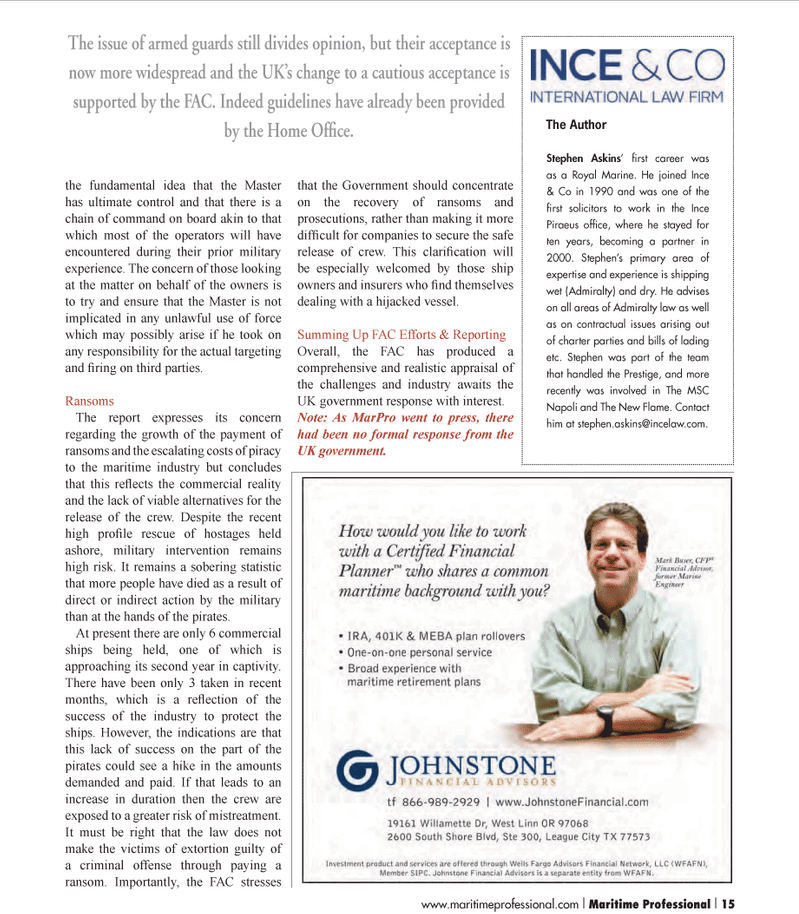
Page 15: of Maritime Logistics Professional Magazine (Q1 2012)
Training & Maritime Security
Read this page in Pdf, Flash or Html5 edition of Q1 2012 Maritime Logistics Professional Magazine
the fundamental idea that the Master has ultimate control and that there is a chain of command on board akin to that which most of the operators will have encountered during their prior military experience. The concern of those looking at the matter on behalf of the owners is to try and ensure that the Master is not implicated in any unlawful use of force which may possibly arise if he took on any responsibility for the actual targeting and Þ ring on third parties. RansomsThe report expresses its concern regarding the growth of the payment of ransoms and the escalating costs of piracy to the maritime industry but concludes that this re ß ects the commercial reality and the lack of viable alternatives for the release of the crew. Despite the recent high proÞ le rescue of hostages held ashore, military intervention remains high risk. It remains a sobering statistic that more people have died as a result of direct or indirect action by the military than at the hands of the pirates.At present there are only 6 commercial ships being held, one of which is approaching its second year in captivity. There have been only 3 taken in recent months, which is a re ß ection of the success of the industry to protect the ships. However, the indications are that this lack of success on the part of the pirates could see a hike in the amounts demanded and paid. If that leads to an increase in duration then the crew are exposed to a greater risk of mistreatment. It must be right that the law does not make the victims of extortion guilty of a criminal offense through paying a ransom. Importantly, the FAC stresses that the Government should concentrate on the recovery of ransoms and prosecutions, rather than making it more difÞ cult for companies to secure the safe release of crew. This clari Þ cation will be especially welcomed by those ship owners and insurers who Þ nd themselves dealing with a hijacked vessel. Summing Up FAC Efforts & Reporting Overall, the FAC has produced a comprehensive and realistic appraisal of the challenges and industry awaits the UK government response with interest. Note: As MarPro went to press, there hadbeen no formal response from the UK government. The AuthorStephen Askins ? rst career was as a Royal Marine. He joined Ince & Co in 1990 and was one of the ? rst solicitors to work in the Ince Piraeus of? ce, where he stayed for ten years, becoming a partner in 2000. Stephens primary area of expertise and experience is shipping wet (Admiralty) and dry. He advises on all areas of Admiralty law as well as on contractual issues arising out of charter parties and bills of lading etc. Stephen was part of the team that handled the Prestige, and more recently was involved in The MSC Napoli and The New Flame. Contact him at [email protected]. The issue of armed guards still divides opinion, but their acceptance is now more widespread and the UKs change to a cautious acceptance is supported by the FAC. Indeed guidelines have already been provided by the Home Of? ce. www.maritimeprofessional.com I Maritime Professional I 15

 14
14

 16
16
